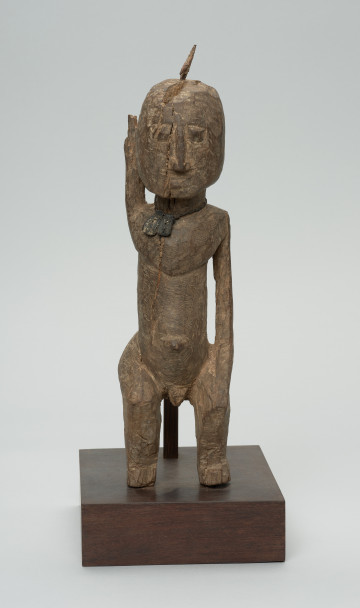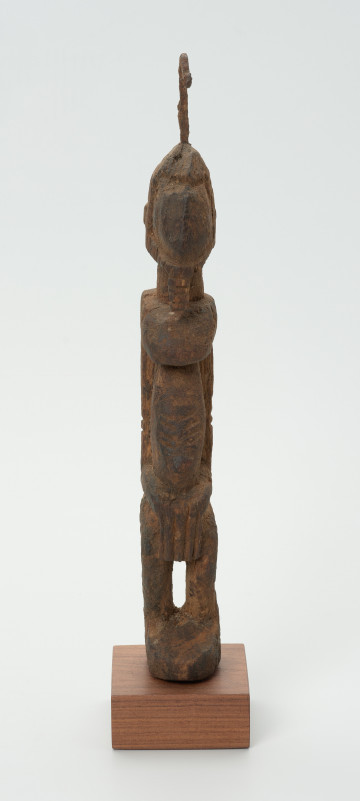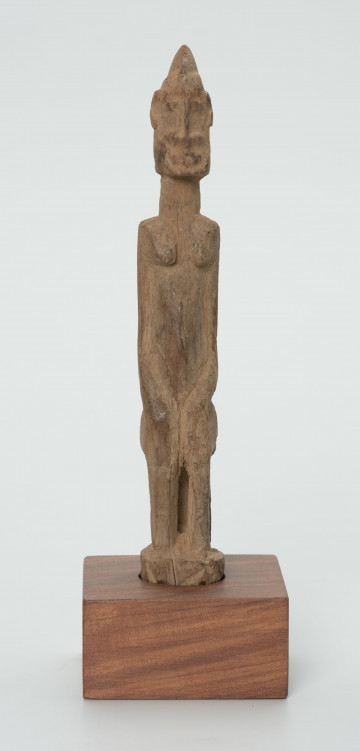
Figure - ancestor
między 1951 — 2000
National Museum in Szczecin
Part of the collection: Collection of Dogonian art
The Dogon are people living in the Republic of Mali. The basis of their economy is digging. Many of the Dogon annual rituals are connected to ensuring a good harvest. To this end, they thank the god Amma and their ancestors for a good harvest and ask for blessings for the coming field season. The two most important festivals in the agricultural calendar are Goru and Bulo, during which the priests of both cults of life - Hogon (priest of the Lebe cult) and Binukedine (priest of the Binu cult) - cooperate. Goru is a harvest festival and is, according to the Dogon, a sign of the beginning of a new year. It is only during the celebration of Goru that the inhabitants of the Bandiagara Escarpment eat for the first time the cereal grains collected during the harvest. The festival is also a prelude to initiation for young boys, who during this time make sacrifices together on a momo altar they have prepared and built in the bush.Some Dogon claim that it is above all a festival of the ancestors, because during its celebration all ancestors are remembered collectively and many of them individually, recalling them by name while making offerings to nani, i.e. reincarnations of dead relatives living in the bodies of living descendants.Newly harvested grain and animals, mainly chickens, are offered as sacrifices. This celebration at the altars reminds the participants of the sacrifice made by the god Amma of O Nommo, one of the perfect beings he created. Amma performed this act to restore order in the universe he created, which was disturbed by his disobedient son Yurugu (Ogo). The meat of the sacrificed animals, after being placed on the altar, is cooked and then distributed to all the inhabitants, starting with the oldest. Boiled millet formed into balls is distributed in the same way. The konyo beer is also consumed in large quantities by all.
Ewa Prądzyńska
Author / creator
Dimensions
cały obiekt: height: 25,5 cm, width: 5,6 cm
Object type
figure
Creation time / dating
Creation / finding place
Identification number
Location / status

między 1951 — 2000
National Museum in Szczecin

między 1951 — 2000
National Museum in Szczecin

między 1901 — 1950
National Museum in Szczecin
DISCOVER this TOPIC
Castle Museum in Łańcut
DISCOVER this PATH
Educational path